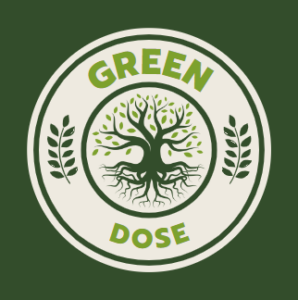In recent years, cloning has shifted from a purely scientific curiosity to a commercially viable business. The idea of purchasing clones—whether pets, livestock, or plants—has gained traction across various industries. While the notion may sound futuristic or even controversial, clones for sale are becoming a real and accessible option for many consumers and professionals. This article delves into what clones are, who is selling them, why people buy clones, and what the future holds for this emerging market.
Understanding Cloning: A Brief Overview
Cloning is the process of creating an organism that is genetically identical to another. This is usually achieved by taking DNA from a donor organism and using it to create a new organism with the same genetic material. The technique most commonly used is called somatic cell nuclear transfer (SCNT), which was famously used to clone Dolly the sheep in 1996.
Cloning can apply to animals, plants, and theoretically humans, though human cloning is widely prohibited and remains in the realm of ethical debate and legal restriction.
Who Is Selling Clones?
The sale of clones is a niche yet rapidly expanding market. Several companies worldwide specialize in cloning high-value animals such as dogs, cats, horses, and cattle. These companies often cater to pet owners who want to replicate their beloved animals, farmers who want to preserve superior livestock genetics, and breeders aiming to maintain or improve specific breed lines.
On the plant side, cloning is even more widespread and commercially established. Nurseries, agricultural businesses, and cannabis cultivators regularly sell cloned plants to ensure uniformity in traits like flavor, yield, and disease resistance.
Why Buy Clones?
There are several motivations behind the decision to buy clones, depending on the buyer’s needs and desires:
Emotional attachment: Many pet owners consider their animals as family members. Cloning a deceased pet offers them a way to preserve the unique traits and personality of their companion, even though the cloned animal is not an exact copy in behavior or experience.
Genetic consistency: Farmers and breeders want to replicate animals with superior genetics that demonstrate desirable characteristics such as faster growth, disease resistance, or higher milk production.
Preserving rare species: Cloning is also seen as a tool to conserve endangered or rare species, offering a method to increase population numbers without relying solely on natural reproduction.
Commercial uniformity: In agriculture and horticulture, cloned plants allow farmers and retailers to provide consistent products, reducing variability and increasing customer satisfaction.
The Cost Factor
Cloning is an expensive procedure. Cloning a pet can cost tens of thousands of dollars, making it accessible only to those who can afford the premium price. Animal cloning prices vary widely depending on species and technology used. Plant cloning, especially through tissue culture methods, is more affordable and commonly used in commercial agriculture.
Ethical and Practical Concerns
The sale of clones also brings up significant ethical and practical questions. Critics argue that cloning pets may lead to unrealistic expectations, as clones may look identical to the original but can behave very differently due to environmental factors and upbringing. Animal welfare organizations worry about the health risks and high failure rates associated with cloning procedures.
In livestock, there is concern about the reduction of genetic diversity, which can increase vulnerability to disease outbreaks. Ethical debates also focus on the commodification of living beings—whether cloning turns animals into products rather than sentient creatures.
Human cloning remains the most controversial topic and is banned in most countries due to moral, legal, and social concerns.
The Legal Landscape
Laws around cloning vary widely by country. Some nations allow the cloning of animals and plants but prohibit human cloning entirely. Others have more restrictive policies across all forms of cloning. Consumers interested in purchasing clones should be aware of the regulations in their region and ensure they work with reputable providers.
Future Trends in Cloning for Sale
Technological advances are expected to reduce cloning costs and improve success rates, making clones more accessible to a broader market. Gene editing tools like CRISPR combined with cloning techniques may soon allow for not only replication but also enhancement of desirable traits, raising new possibilities—and ethical dilemmas.
In agriculture, cloned animals and plants could play a key role in meeting the demands of a growing global population by providing more efficient food production. In the pet industry, personalized cloning services could expand, offering owners a chance to “bring back” a favorite animal.
Conclusion
Clones for sale represent a fascinating intersection of science, commerce, and ethics. As cloning technology matures, its market presence will likely increase, offering new opportunities for industries and individuals alike. However, the journey forward requires careful consideration of the ethical implications and a commitment to responsible use.
Whether driven by love, profit, or conservation, the decision to buy clones comes with profound questions about identity, nature, and what it means to replicate life itself. As consumers explore this brave new world, society must balance innovation with thoughtful oversight to ensure cloning serves the greater good.
